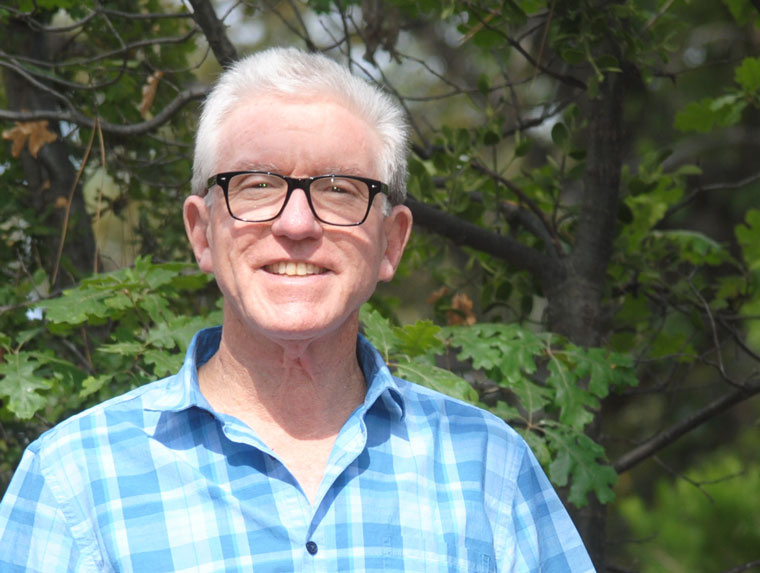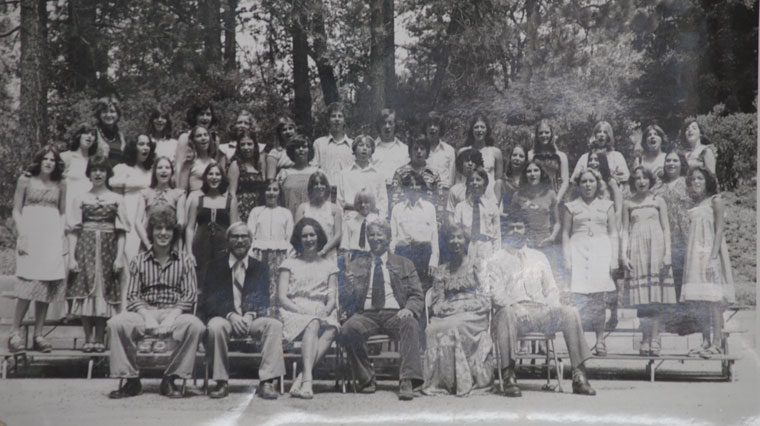
Thirty years can be considered a long time — especially in a job. Fifty years is even longer and after nearly half a century, Steve Fraider is leaving the Idyllwild Arts Summer Programs. But he will never be able to disconnect from the school, as he said, “After Dec. 31, only the employment relationship ends.”
Since 1986, Fraider has planned and organized the school’s renowned Summer Programs, which is how he began his association with the program in 1965.
That summer, he came to Idyllwild to sing in the ISOMATA (Idyllwild School of Music and the Arts) Festival Choir and returned for five more years. That is also when he met and became friends with Bill Lowman, the school’s former president and headmaster.
The choir director was Robert Evans Holmes, whose son, Dwight or “Buzz” was also a choir member. They both attended Beverly Hills High School, where Robert was head of the music program.
“To be a member of the Madrigal Singers, we were encouraged to attend,” Fraider said proudly. “Everybody went to Idyllwild first. It was the best experience ever and changed my life.”
“He has given steadfast and undying leadership to the school,” Buzz said.Fraider’s bass was so good, he became a professional singer and in 1974 he returned to the summer school as a counselor for four years. During this period, his friendship with Lowman continued, who also served on the summer staff.
“We became friends as we shared the intensity and fellowship of summers on campus and making music together,” Lowman said.
Fraider sang with the Los Angeles Master Chorale, but maintained his connection to Idyllwild. He was the bass soloist for the Idyllwild Master Chorale, performing in the annual “Messiah” concert, which is how his relationship with Lowman was re-united in December 1985.

A few months later, he was appointed the executive director of the newly independent ISOMATA/ Idyllwild Arts Foundation. IAF acquired the school and campus from the University of Southern California.
Fraider reached out to Lowman. “I already knew I wouldn’t have a long career as a music educator,” he said. So he contacted Lowman and offered to represent the institution in Los Angeles, recruiting students and “assur[ing] the LA communities that the school was not defunct as predicted in a Los Angeles Times article about the end of the USC ownership,” Lowman said.
“We agreed that I would work through the spring and summer and see what happened,” Fraider said. “The Summer Programs had really shaped our lives.” But with the times changing, the program was floundering. USC was willing to sell to the IAF.
“We needed to re-focus on [Max and Bee] Krone’s original ideas, a wonderful and life-changing arts education,” he recalled. “The arts are universal — every culture has music and dance.”
“Steve Fraider served with distinction and added his own vision to the original dream of Max and Bee Krone,” Lowman said.
Initially, Lowman thought he could lead both the new Academy and the Summer Programs, but the former required much more time with the board, raising funds and establishing a complete boarding school for the arts. Thus, Fraider assumed the lead of the Summer Programs and eventually the title of director.
“Over the years between 1986 and now, Steve was the historical conscience of the summer, the creator of bold new ideas for-Summer Programs, the operational leader, the key presence in selection of the all important arts faculty and program chairs,” Lowman said. “He guided the summer very carefully so that it achieved its historical arts education purpose and responded to the changing times.”
“Every summer has had a plethora of programmatic and personal moments,” a smiling Fraider said. He mentioned Lynn, who conducted the choir in 1999 and was suffering from cancer. Two weeks later she died. “That was truly remarkable,” he said, closing his eyes.
Describing Fraider’s contributions, not just to his Summer Programs, but allegiance to the entire educational program, Lowman said, “When our resources and efforts were focused on the Academy he always reminded everyone that each new development, building or program must be considered for both programs. Accordingly, the dorms were carefully constructed for both programs, and the arts studios and performance facilities were set up for both purposes.”
The Summer Programs served the students and the faculty delivered the goal of a high-quality artistic experience. “As administrators, our job essentially was to make the job of the faculty easy. I learned early not to make promises I couldn’t keep,” he explained. “We looked for the best faculty to teach highly motivated students. Once the program was re-charged, the place blossomed.”
“Today, I feel it’s as good, if not better, as always. The consistency of quality is there for children, teens and adults,” he said smiling. The world of the arts and education can be draining. It takes energy to sustain the effort. After 31 years, it’s time for someone else to take up the effort.”
His long-time friend Buzz added, “His 30 years heading the Summer Programs is quite an accomplishment. Few jobs are as arduous as this.”










